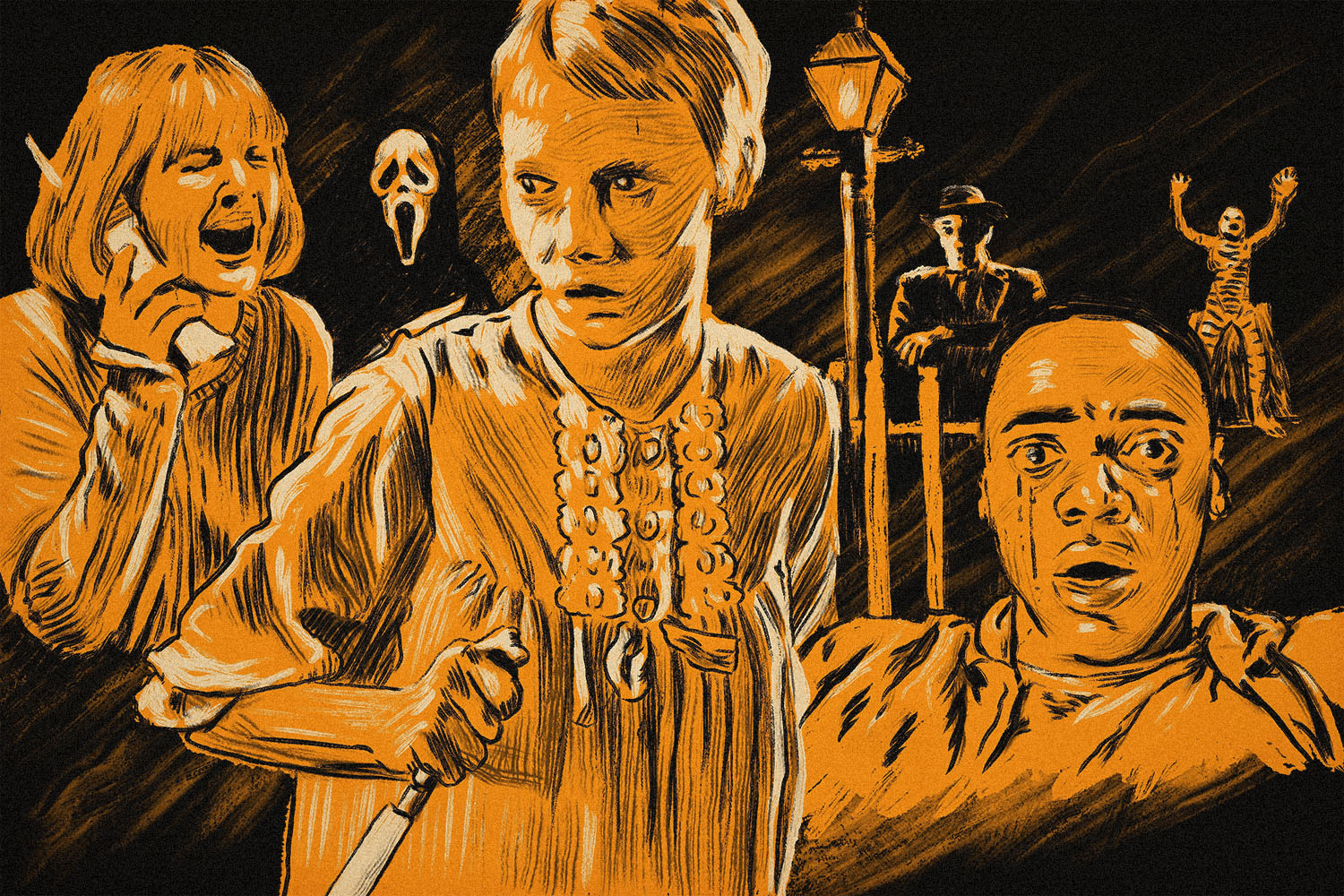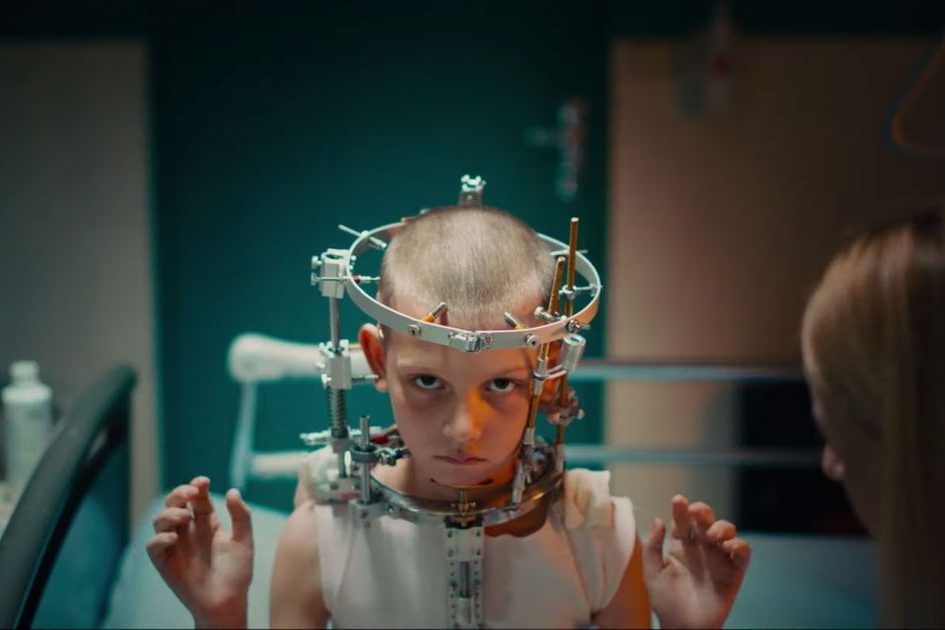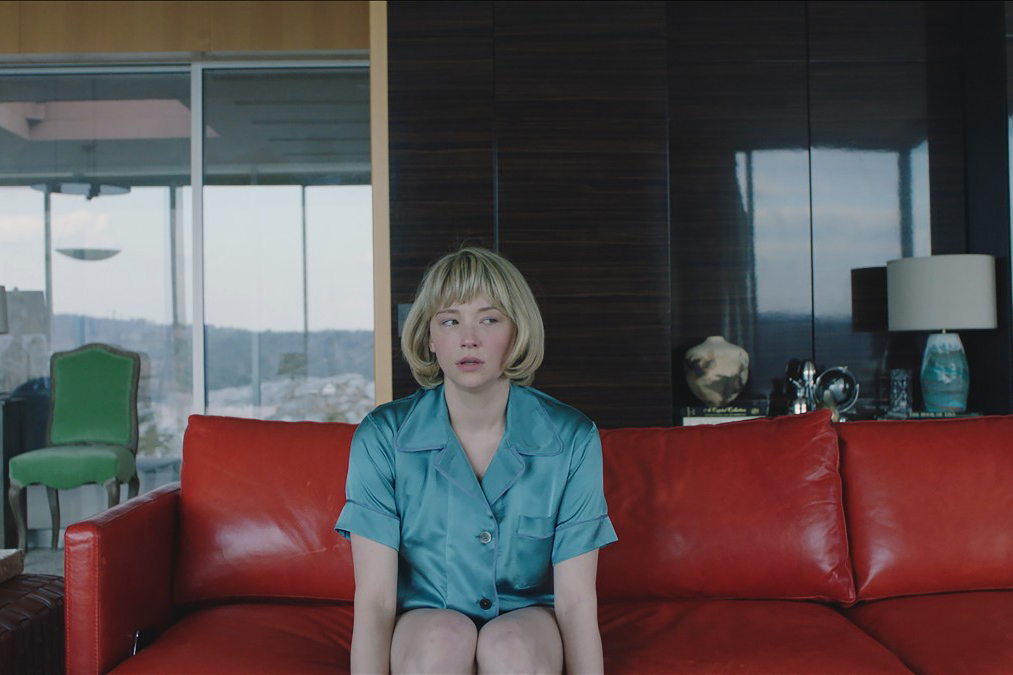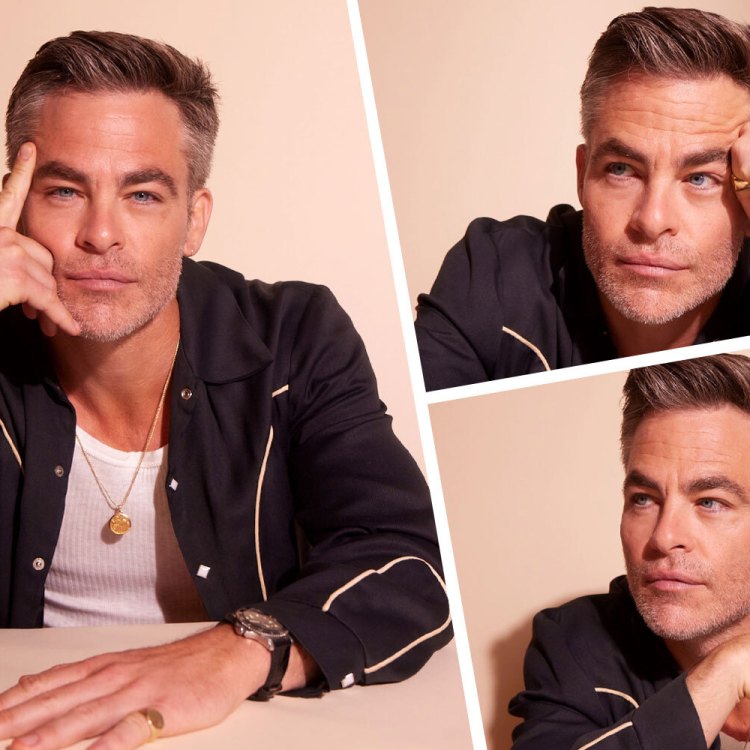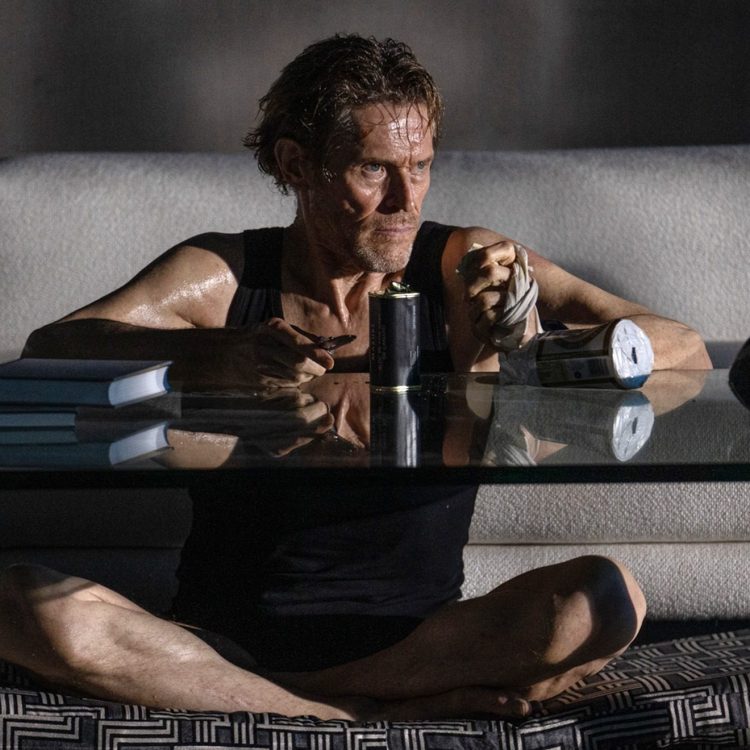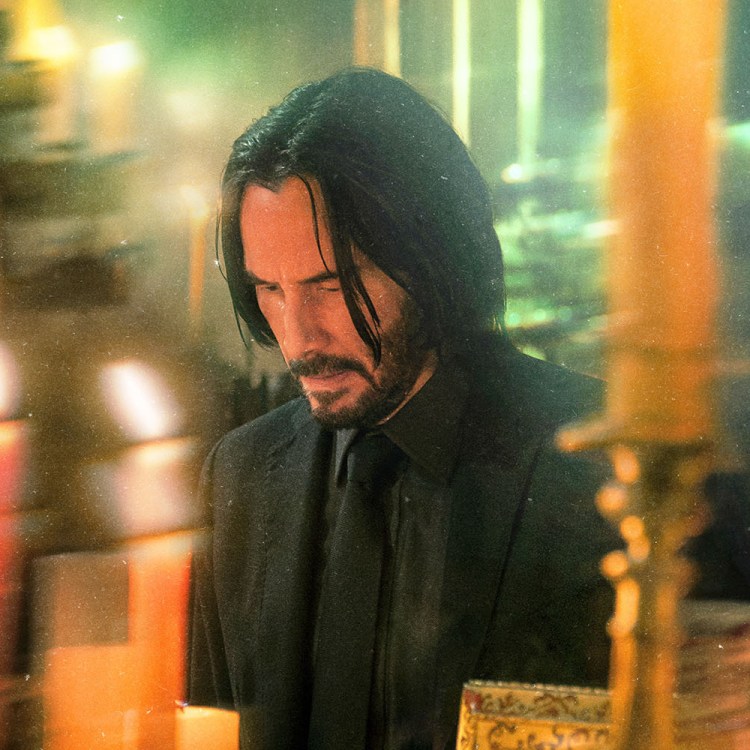Just as the angst of playwrights is potentially infinite, so too is the number of plays about big, fractious families. It’s the most reliable tradition of American dramaturgy we’ve got: generational tensions and long-simmering personal resentments come to a head as everyone gets together for an event like the holidays, a wedding or a funeral, with any uncomfortable boyfriends, girlfriends or in-laws forced into the role of reluctant interloper. Theater being predominantly written by people living in New York, that dynamic often reiterates itself through setting, as a city-dweller returns to their outer-metro childhood home or the loved ones they’ve left behind come back to visit. Distant fathers, overbearing mothers, sibling rivals, abuse, yelling, tears — it’s such stuff as Pulitzers are made of, from Inge to Albee to Shepard to Wilson.
Any on-paper synopsis of The Humans, Stephen Karam’s Tony-winning Broadway triumph that he’s now adapted for the big screen, would place it squarely within this creative lineage. The Blake clan convenes in the simultaneously cavernous and cramped Chinatown apartment of daughter Brigid (Beanie Feldstein) and her well-meaning boyfriend Richard (Steven Yeun) for their first Thanksgiving dinner spent away from her hometown of Scranton, PA. Money’s tight for dad Erik (Richard Jenkins), mom Deirdre (Jayne Houdyshell, reprising the role she originated) can’t stop obsessing over her weight, eldest daughter Aimee (Amy Schumer) contends with a fresh breakup and impending firing, and things aren’t all peaches and cream for the hosting couple, either. Alzheimer’s-stricken grandmother Momo (June Squibb) sits wherever she’s put and babbles in nonsensical free-verse poetry to herself, her mouldering presence the first hint at the reek of death that’ll soon waft over their evening.
The audience can reasonably expect that the Blakes’ baggage will all be dumped out for our perusal over the night to come, which it will, but Karam’s execution puts this film a notch above its many cousins in dysfunction. He communicates the mood of discord and unsettlement through the visual language of horror, a clever gambit made clearer and more effective by its transfer to the cinematic medium. Every script retreading this same ground wants to feel like the reunion from Hell; situated between the looming annihilation of 9/11 and the more intimate breakdown of a family unit, this one has been directed to look like it, too.
The stage production drew plaudits for the canny set design housing the action in a two-story slice of cross-section, a full view that Karam saves for the final moments of his film. Prior to that, he establishes a more complex spatial awareness in three dimensions, starting with the credits shot upward through the narrow columns of open space stuck in the center of high-density buildings, laughably referred to as “courtyards.” A legal necessity allowing the addition of windows looking into nowhere, this restrictive image courtesy of cinematographer Lol Crawley — the cutout of light surrounded by darkness a rich symbol — introduces the claustrophobia that’ll only grow more stifling as the film rolls on. In the early scenes, his camera prowls around corners like a stalker, or peers through doorways in wide shots with a serial killer’s dispassion. An early long take holds still while the family jimmies Momo’s wheelchair through a corridor its exact width, their struggle to fit in the allotted room sad and faintly comical and altogether apt.
Like 2020’s superb The Nest, this is a haunted house story without literal ghosts, the walls possessed by the ambient malevolence of the present rather than past. Whereas Sean Durkin’s film focused on a family in decay due to the flaws and follies of the paterfamilias, Karam’s puts that corrosive energy in the air and lets it seep into everyone individually. As dads do, Erik surveys the property and finds plenty of cause for concern; a urinary-looking liquid drips from the ceiling, cell reception is available only by pressing one’s face against the window, and the paint has bubbles which will eventually start a-throbbing and contribute to the creeping notion that the apartment is its own organism. Things go bump in the night above their heads, the upstairs neighbor generating clomps and thumps that filter back downstairs as effective, textually appropriate jump scares. Whenever someone thinks they’ve gotten their bearings, something sudden and disorienting happens, and the abrupt sound effects provide a counterpart in audio.
One significant source of this ominousness is the World Trade Center, recently destroyed in the film’s timeline, the long shadow it once casted over Brigid and Richard’s love-nest now metaphorical. Erik only speaks fleetingly about the terror he felt that morning, rushing to find Aimee through the clouds of dust, a fear that clearly hasn’t left him. He channels the impulse to despair into a low-burn climate panic, directing his gaze out the window and idly remarking on the apartment’s placement in the inevitable flood zones. He’s suffused with dread on a more self-conscious level than those around him, relating a surreal nightmare he’s had about a faceless woman, and ultimately harboring the cast’s biggest, most shameful secret. Jenkins, surely one of the finest American character actors alive, pushes his mild-mannered paternal energy to a grimmer register with poignant results.
There’s a sinking feeling all over, the surroundings and the country and the Blakes all in comparable states of disrepair. Erik and Deirde have slid into a spiritual crisis that could see him dismissed from the Christian academy where he coaches sports, and they’re distressed to see that Brigid doesn’t really prioritize the religion on which she was raised. (Why Feldstein and Schumer, both notably Jewish actors, have been cast as Irish Catholics is something of a puzzler, but their lived-in performances make that much easy to accept.) The point isn’t to chastise anybody for having strayed from the path of the light, rather to show one way of life receding before a modernity stampeding onward.
In the minds of many Americans, 9/11 and the accompanying realization that we’re not nearly as safe as we presume created a new reality, one that Brigid and Richard know how to inhabit. As in the stage version, the young couple of superfruit-eaters is mixed-race, pursuing work for fulfillment instead of pay, comfortable discussing depression and other things Christian manners leave as “stoic sadness.” They can navigate the apartment’s hazardous spiral staircase and confined hallways because they live there, a benefit the older Erik and Deirdre don’t have. They’re less capable, requiring help with a car as things wind to a close, the immobile Momo looking more and more like a phantom of the bleak future awaiting them.
Tempers flare, heated words that can’t be unsaid are nonetheless said, and the Blakes reconcile, aware that family may be the one thing we can hold onto in a frightening, changing world. The anxieties that plague them linger on long after they leave the apartment and the credits run, however. The decrepit duplex gives external physical form to the churning pit in a person’s stomach that can follow them everywhere they go. For those who feel that sensation coming on with each family meetup, its disquieting rendering here may very well be enough to cause its onset secondhand.
This article was featured in the InsideHook newsletter. Sign up now.

